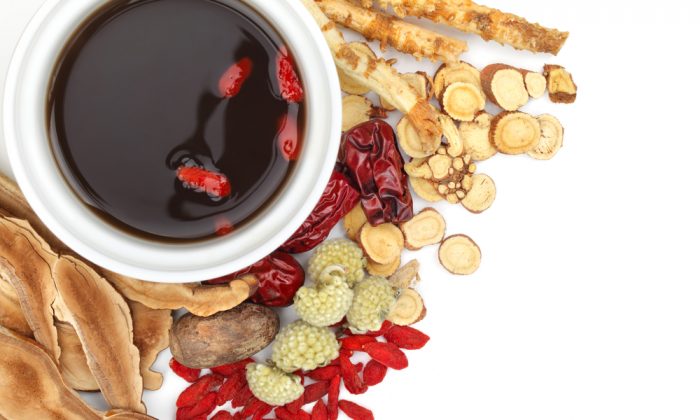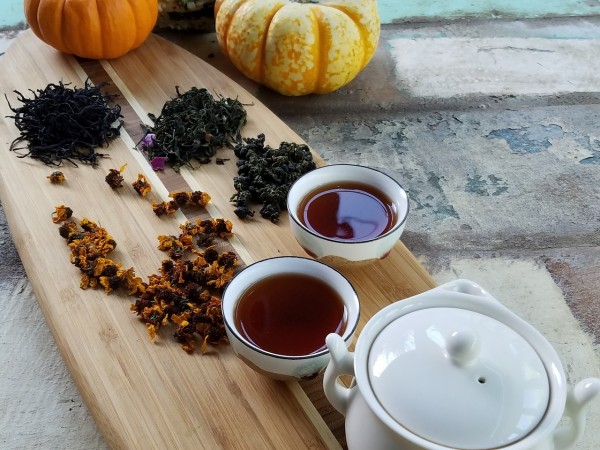
Eight Treasures Tea: An Elixir From Ancient China
Herbal remedies have been used in China for millennia with each dynasty classifying and documenting new treatments as they were discovered.
Shennong meaning “Divine Farmer,” lived some 5,000 years ago and taught the ancient Chinese agriculture and how to use herbs to treat their ailments. He is credited with inventing the hoe, axe, and plow, and understanding the importance of taking a patient’s pulse to diagnose their condition. Pulse taking is now a standard diagnostic procedure in Chinese medicine. Shennong also began compiling a book called “Divine Farmer’s Materia Medica” which discussed agriculture and the properties of 365 medicinal herbs.
Later, in the Tang Dynasty (618–906) there were 114 more herbs added, and then during the Song Dynasty (960–1279) another 120 were added.
It wasn’t until the Ming Dynasty (1518–1593) when one of China’s most famous doctors, Li Shizhen, completely rewrote the book.
Li thought the categories were too complicated, the names were not properly assigned, and that the herbs were not properly documented. After devoting 30 years of his life to consultation of more than 800 books and writing three revised versions, Li compiled the most comprehensive medical book and called it the “Bencao Gangmu” (The Great Compendium of Herbs). It has over 52 volumes and includes 1,892 herbs with over 100 illustrations and 10,000 prescriptions.
To this day, the “Bencao Gangmu” is regarded as the most complete and comprehensive medical book ever written in the history of traditional Chinese medicine.
Eight Treasures Tea
Of all the herbal tonics in China, none is as well known as the medicinal tea called the “Eight Treasures Tea” (Ba Bao Cha), the base of which was created during the Tang dynasty. However, it wasn’t until Li changed some of the ingredients and added a few more, that it really became one of the most traditional tonics in Chinese history.
“Eight Treasures” is popular in part because of its many health benefits. It is known as an elixir in China because it helps improve blood circulation, raise energy levels, boost the immune system, clear lightheadedness, aid liver function and breathing, help remove dark under-eye circles, hydrate dry skin, fight fatigue, and can help women maintain a regular menstrual cycle.
There are many different varieties of “Eight Treasures” with different recipes made in different dynasties and depending on the availability of ingredients. The more common ingredients according to Li are:
Green tea Jasmine green tea brings out a more floral flavor.
Dried chrysanthemum flowers: 1–2 tablespoons
Goji berries: 4–6 berries
Dried Chinese red dates: 2 fruits
Dried Dragon Eye (Longan): 2 pieces
Licorice root: 1–2 pieces
American Ginseng: 1–2 roots
Dried fruit: You can use 1–4 pieces of apples, oranges, or raisins depending on size.
Rock Sugar
Li also mentioned you can add sesame seeds, lotus roots, peanuts, or walnuts. The portions are not set, so you can add more or less as desired.
Preparation:
This tea is ideal to make in a pot instead of just a cup because of all the ingredients. Combine all ingredients except the green tea in a pot, and pour enough boiling water over them to cover completely while leaving some room at the top of the pot.
Unlike tea, the longer it brews the better, as the taste will be sweeter and more nutrients will come to from the herbs. I recommend 5–10 min. After you think it is almost ready, in a separate cup make the green tea as you would normally, a bit stronger than normal. After brewing, pour tea (straining out the leaves) into the pot with the other ingredients. It is now ready to drink and serve.
Note: If pregnant please consult your doctor before using the ingredients listed above.
by Benjamin Chasteen





